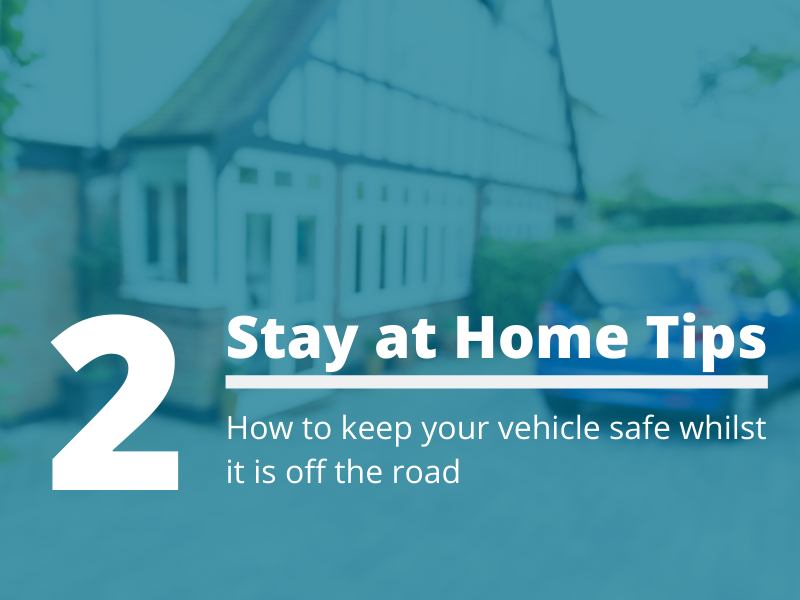It’s a good idea to keep your vehicle protected from the elements if it’s not going to be used for a long period of time.
If possible, parking in a garage will protect the vehicle from damage caused by exposure to bad weather. When parking in a garage, ensure it’s free from humidity and damp as this can corrode paintwork and cause mould.
If you are unable to park in a garage,– which most drivers won’t be able to – instead invest in a quality cover. Make sure you buy one that’s been designed for your vehicle model or type. However, avoid using a cover if you’re parking in a garage, as this will ensure any moisture that is left inside the vehicle will evaporate faster.

